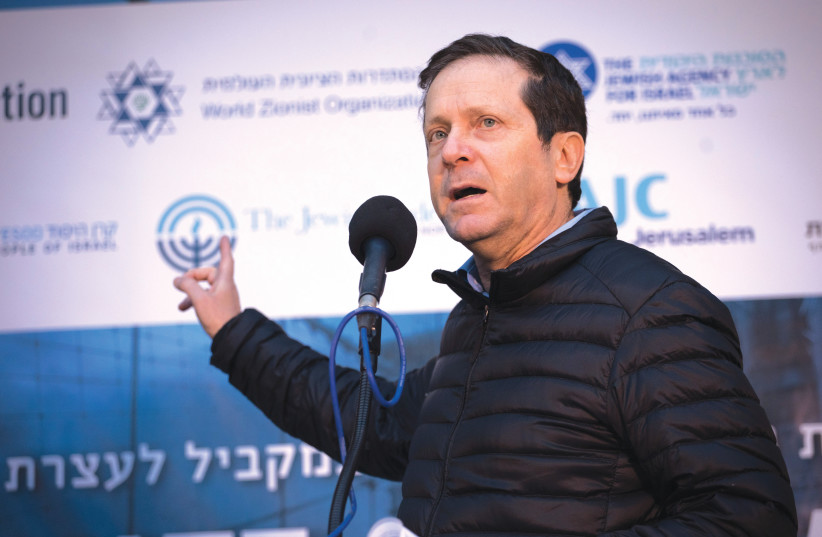Prime Minister Naftali Bennett found a new scapegoat for the lack of progress in implementing the Western Wall agreement this week, telling cabinet ministers the deal requires permits from the Jerusalem Municipality.
Bennett spoke to cabinet ministers Nachman Shai and Elazar Stern, who complained that NIS 110 million was allocated more than five years ago for the Western Wall (Kotel in Hebrew), but no money was earmarked for the Southern Wall’s egalitarian prayer site, which is in need of immediate repairs.
Under the terms of the deal, the Western Wall was to be officially set aside for only Orthodox prayer and the southern plaza for non-Orthodox prayer, including the Conservative and Reform movements.
“The current decision applies to the Orthodox northern plaza,” Bennett told the ministers at the cabinet meeting. “The cabinet secretary [Shalom Shlomo] is currently working on the rehabilitation of the southern plaza. It also requires permits from the City of Jerusalem, and we will bring them separately.”
Bennett’s placing the blame for the lack of progress, in part, on the Jerusalem Municipality set off alarm bells among advocates of pluralism and progressive Judaism. They are concerned because the Jerusalem City Council has a majority of haredi (ultra-Orthodox) and hard-line religious-Zionist members. Mayor Moshe Lion is also Orthodox and has never shown an interest in promoting egalitarian prayer.

A building permit for the prayer site would have to go through the head of the Jerusalem Building and Planning Subcommittee, Degel Hatorah’s Eliezer Rauchberger, who is the most powerful haredi figure in the city. When President Isaac Herzog headed the Jewish Agency, he tried to take steps to aid the egalitarian prayer site, but he was blocked by Rauchberger.
Rauchberger on Tuesday said he had not been approached by the government regarding the issue, adding that his views were well known.
“There is a difference between significant and insignificant construction,” Rauchberger said. “If it needs a building permit, it has to go through me, and if it is anything that goes against Halacha, I am not interested.”
When groups involved in advancing the egalitarian prayer site met with Shlomo last week and he mentioned the city’s involvement, they said they were concerned. Shlomo told them not to worry, but they left unconvinced.
“The fact that the City of Jerusalem, which proved in the past that it knows how to stall repairs at the Western Wall, now is needed to provide a building permit for repairs at the Ezrat Israel [prayer site] is completely unreasonable,” Women of the Wall Director-General Yochi Rappaport said. “The current makeup of the City Council and the relevant committee includes many who ideologically oppose repairing our plaza. This absurd situation proves once again how urgent and important it is to find creative solutions to enable the full implementation of the Kotel agreement.”
A government or Supreme Court decision could force Rauchberger to authorize a permit or let the City Council deal with it after haredi council members leave the room, as happens when funding is authorized for the LGBT community. But short of that, going through the city could prove tricky.
“Unfortunately, we pluralists who understand the importance of this are in the minority,” said Deputy Jerusalem Mayor Fleur Hassan-Nahoum, who is in charge of international relations and tourism. “Leaving it in the hands of the city is a sure way for this to not happen because we lack a majority on the council and the Building and Planning Committee.”
